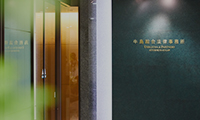The Japanese Government has started to disclose names of so-called “Black Companies” (“burakku kigyo” in Japanese, which generally means companies which force their employees work under harsh working conditions), which illegally have their employees work long hours, even before the cases are sent to prosecutors. Once a company is labelled with the stigma of Black Company, it would have difficulty recruiting young and talented employees.
On May 19, 2016, the Chiba Labor Bureau disclosed the name of a certain JASDAC-listed company. It is reported that, in one month, this company had its 63 employees engage in more than 100 hours of overtime work and work during the holidays at its four workplaces. The Labor Bureau decided to disclose the company’s name because the company continued such illegal practices even after the Labor Bureau recommended it to rectify such practices four times during the past year. This disclosure resulted in the company’s stock price falling even though it had just announced record high profits.
This was the first disclosure based on the new standards announced by the Ministry of Health, Labour and Welfare (“MHLW”) on May 18, 2015 for disclosing names of companies that illegally have their employees work long hours. Under the previous standards, names of companies were disclosed only when the cases were sent to the Public Prosecutor’s Office. According to the new standards, disclosure can be made at an earlier stage of receiving the administrative guidance.
Under the new standards, the name of a company will be disclosed if the relevant case meets both of the following two requirements:
1) The company has significant social impact, more specifically, such company has workplaces in more than one prefecture and does not fall under the definition of a “small and medium-sized enterprises” under the Basic Act for Small and Medium-Sized Enterprises[1]; and
2) The illegal long hours of work (namely, (a) violation of the Labor Standards Act regarding work hours, holidays or overtime premiums; and (b) more than 100 hours of overtime work or work on holidays in a month) are found to apply to 10 or more employees or 25% or more of the employees working at one workplace and such practice took place at three or more workplaces during the period of approximately one year.
Although at this stage, the target of the above new standards is limited to large companies, since the Government is rapidly strengthening its effort to eliminate illegal long work hours (please see “New Government Measures to Eliminate “Excessive Work” in Japan” (https://www.ushijima-law.gr.jp/fwp/wp-content/uploads/2022/04/20160502UP_newsletter.pdf)), their target might expand to small and medium-sized companies in near future.
[1] “Small and medium-sized enterprises” are defined for each type of business, as follows:
- i) Retail business: Any company whose amount of stated capital is not more than JPY 50 million and any company or individual whose number of regular employees is 50 or less.
- ii) Service business: Any company whose amount of stated capital is not more than JPY 50 million and any company or individual whose number of regular employees is 100 or less.
iii) Wholesale business: Any company whose amount of stated capital is not more than JPY 100 million and any company or individual whose number of regular employees is 100 or less.
- iv) Other types of business: Any company whose amount of stated capital is not more than JPY 300 million and any company or individual whose number of regular employees is 300 or less.


